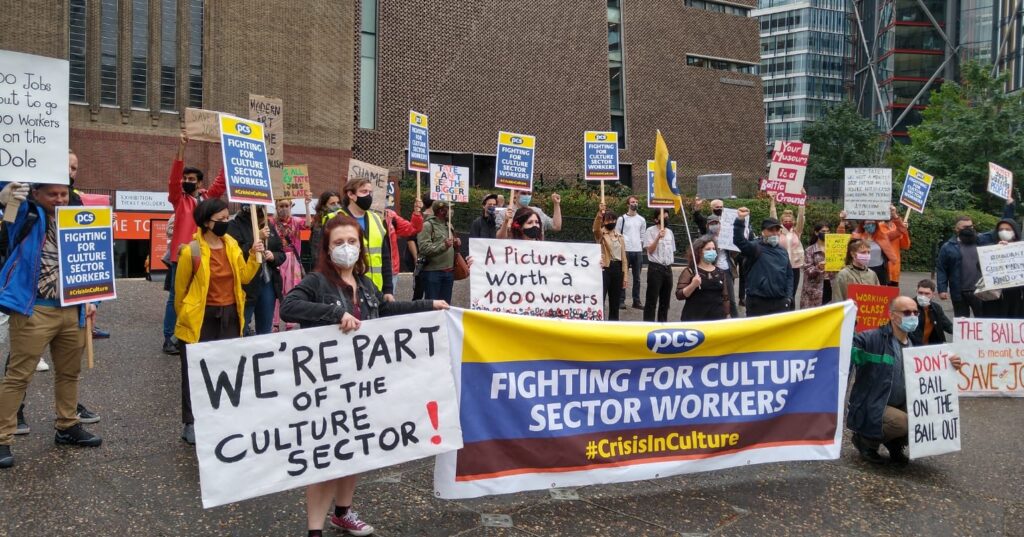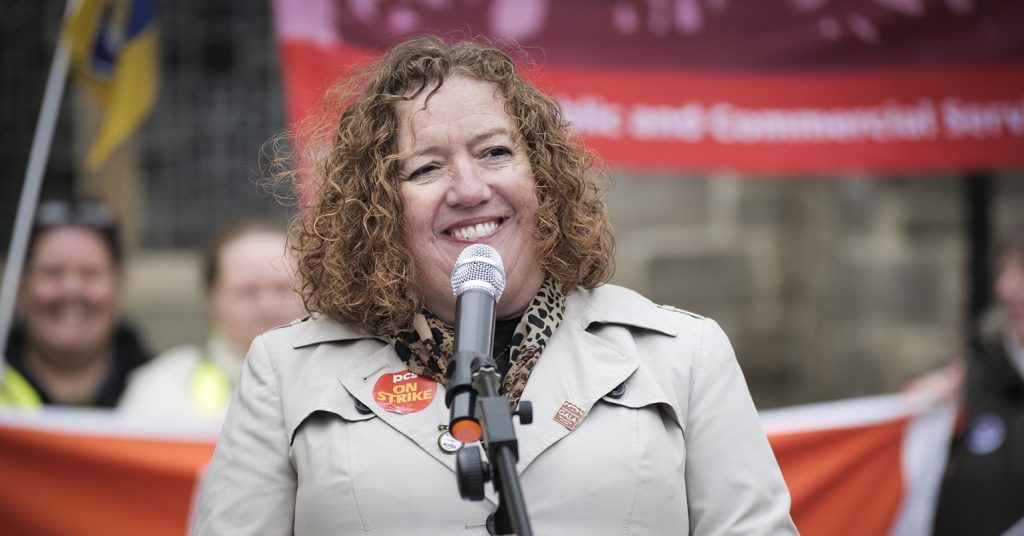Tate workers rally against redundancies

On the 27th July, workers and supporters gathered outside of the Tate Modern for a socially-distanced demonstration. With masks and placards, the crowd gathered in opposition to over 200 planned redundancies across Tate Enterprises, the commercial arm of the Tate galleries. The dozens protesting showed the strength of opposition to these proposals from Tate management.
PCS members say these redundancies will disproportionately affect minority ethnic staff, many of whom are among the lowest-paid staff on the Tate estate. As one PCS member put it ‘despite Tate’s statements on diversity, it’s clear, given there are no redundancies announced for gallery staff, that Tate will do nothing to actually support the lower paid, more diverse teams within the workforce.’
Many excited to visit the gallery on its first day open since lockdown were shocked to hear of the gallery’s mistreatment of staff during a pandemic. As PCS members read messages of solidarity, those in the long queues to enter watched and cheered.
Tate Enterprises, which operates retail, catering, and publishing services across the 4 Tate galleries in London, Liverpool, and St Ives, notified staff in mid-June of restructuring plans aimed at saving £1 million this financial year. It is pressing ahead with the plans despite receiving an additional £7m from the government in additional grant in aid, which followed the government’s announcement of £1.57 billion funding for the culture sector, meaning it will need to use far less of its unrestricted cash reserves than it thought it would have to.
Whilst there is an ongoing consultation between Tate Enterprises and PCS members, this protest marked the start of what may become a longer struggle. On the 15th July, PCS union members issued formal notice of a statutory ballot, which will last from the 22nd July until the 3rd of August. If successful, PCS workers at Tate galleries will begin strike action in full force.
Despite the government announcing a £1.5 billion bailout for the arts sector, the Tate is one of many institutions going forward with redundancies. Those rallying outside the Modern also highlighted similar struggles in London. Nearby, the Southbank Centre is planning to make up to two thirds of its staff redundant, with similar lay offs planned at the Historic Royal Palaces and National Theatre.
The coming months will likely see a protracted struggle to defend workers in the arts sector. In the end, for workers facing layoffs, it is an anxious and insecure time. As one PCS member summarised ‘after four years of working at Tate, to be told you are being made redundant in the middle of a pandemic and a possible economic downturn is both heart-breaking and terrifying.’




27th August?